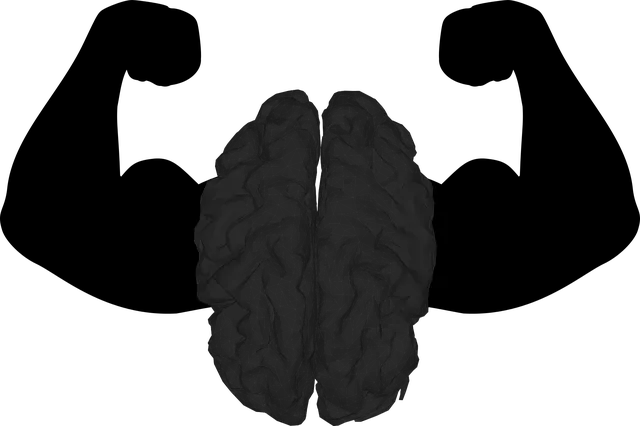Arvada Kaiser Permanente mental health services provide crisis intervention focusing on immediate support and stabilization. Professionals use techniques like conflict resolution and coping mechanism teaching to empower individuals. Holistic care emphasizes self-care practices for long-term well-being, promoting stress management and resilience building. Tailored interventions address unique needs, cultural backgrounds, and underlying issues, offering personalized therapy and counseling. These services aim to revolutionize mental health support in Arvada by fostering self-awareness and emotional regulation through mindfulness and physical activity.
In times of crisis, effective intervention strategies are vital. This guide delves into the essential components of crisis intervention, offering a comprehensive foundation for providing immediate and long-term support. We explore practical approaches, including evidence-based techniques, learned from organizations like Arvada Kaiser Permanente, which prioritizes mental health resources. By understanding individual needs and fostering resilient coping skills, we can navigate crises successfully.
- Understanding Crisis Intervention: A Foundation for Help
- Arvada Kaiser Permanente: Mental Health Resources Accessible
- Assessing the Crisis: Identifying Individual Needs
- Evidence-Based Strategies for Effective Support
- Building Resilient Coping Skills: Long-Term Solutions
Understanding Crisis Intervention: A Foundation for Help

Crisis intervention is a critical component of mental health support, especially in communities like Arvada where Kaiser Permanente offers specialized services. Understanding this process is foundational to providing effective assistance during times of crisis. It involves immediate and focused interventions aimed at stabilizing individuals and helping them manage intense emotions or situations. The primary goal is to prevent further deterioration and guide people towards long-term recovery.
Arvada Kaiser Permanente’s mental health professionals employ various techniques, including conflict resolution strategies, to create a safe space for individuals in crisis. By facilitating open communication and teaching effective coping mechanisms, these experts empower individuals to navigate challenging circumstances. Additionally, promoting self-care practices is integral to the process, ensuring that people have the tools to maintain their well-being both during and after the immediate crisis.
Arvada Kaiser Permanente: Mental Health Resources Accessible

Arvada Kaiser Permanente offers a wealth of mental health resources tailored to meet the unique needs of its community. This healthcare provider recognizes the significance of addressing psychological well-being alongside physical health, making mental health services easily accessible to residents in Arvada. Their comprehensive approach includes a range of support systems and interventions designed to help individuals navigate through stressful situations and challenging life events.
One effective strategy employed by Arvada Kaiser Permanente is the promotion of self-awareness exercises and coping skills development. By encouraging patients to engage in activities that foster introspection and emotional understanding, they empower individuals to manage stress more effectively. Additionally, integrating stress management techniques into their mental health services equips individuals with valuable tools to confront and overcome crises, enhancing overall resilience.
Assessing the Crisis: Identifying Individual Needs

When assessing a crisis situation, especially in mental health contexts like those offered by Arvada Kaiser Permanente, understanding individual needs is paramount. This involves not just identifying the immediate issue but also recognizing underlying factors contributing to the crisis. Every person’s experience and response to stress are unique; some may struggle with anxiety, while others could be dealing with depression or trauma. A comprehensive assessment should consider cultural backgrounds, as Healthcare Provider Cultural Competency Training can play a vital role in understanding these nuances. By acknowledging and addressing these diverse needs, interventions can become more tailored and effective.
For instance, stress management techniques might benefit individuals struggling with acute anxiety, while resilience-building exercises could empower those facing long-term trauma. The goal is to provide targeted support that resonates with the individual’s unique circumstances, fostering a sense of safety and empowerment in navigating their mental health journey.
Evidence-Based Strategies for Effective Support

Building Resilient Coping Skills: Long-Term Solutions

At Arvada Kaiser Permanente, we understand that building resilient coping skills is a long-term solution for mental health and wellness. Our crisis intervention guidance emphasizes self-care practices as a fundamental aspect of managing stress and adversity. By equipping individuals with effective strategies, we enable them to navigate challenging situations with greater ease and resilience.
In the context of Mental Wellness, our approach focuses on fostering self-awareness and emotional regulation. We encourage regular Self-Care Practices such as mindfulness exercises, physical activity, and maintaining a balanced lifestyle. These practices not only help in reducing immediate distress but also build a strong foundation for long-term mental health stability. Through our guidance, folks can learn to recognize early warning signs of crisis and develop proactive measures to prevent or mitigate their impact.
In conclusion, crisis intervention strategies play a pivotal role in providing immediate support and fostering long-term resilience. By understanding the foundational principles outlined in this article, including evidence-based practices from sources like Arvada Kaiser Permanente’s mental health resources, professionals can offer effective guidance during crises. Assessing individual needs and implementing coping skills development ensures a comprehensive approach to crisis management, ultimately enhancing overall well-being.






